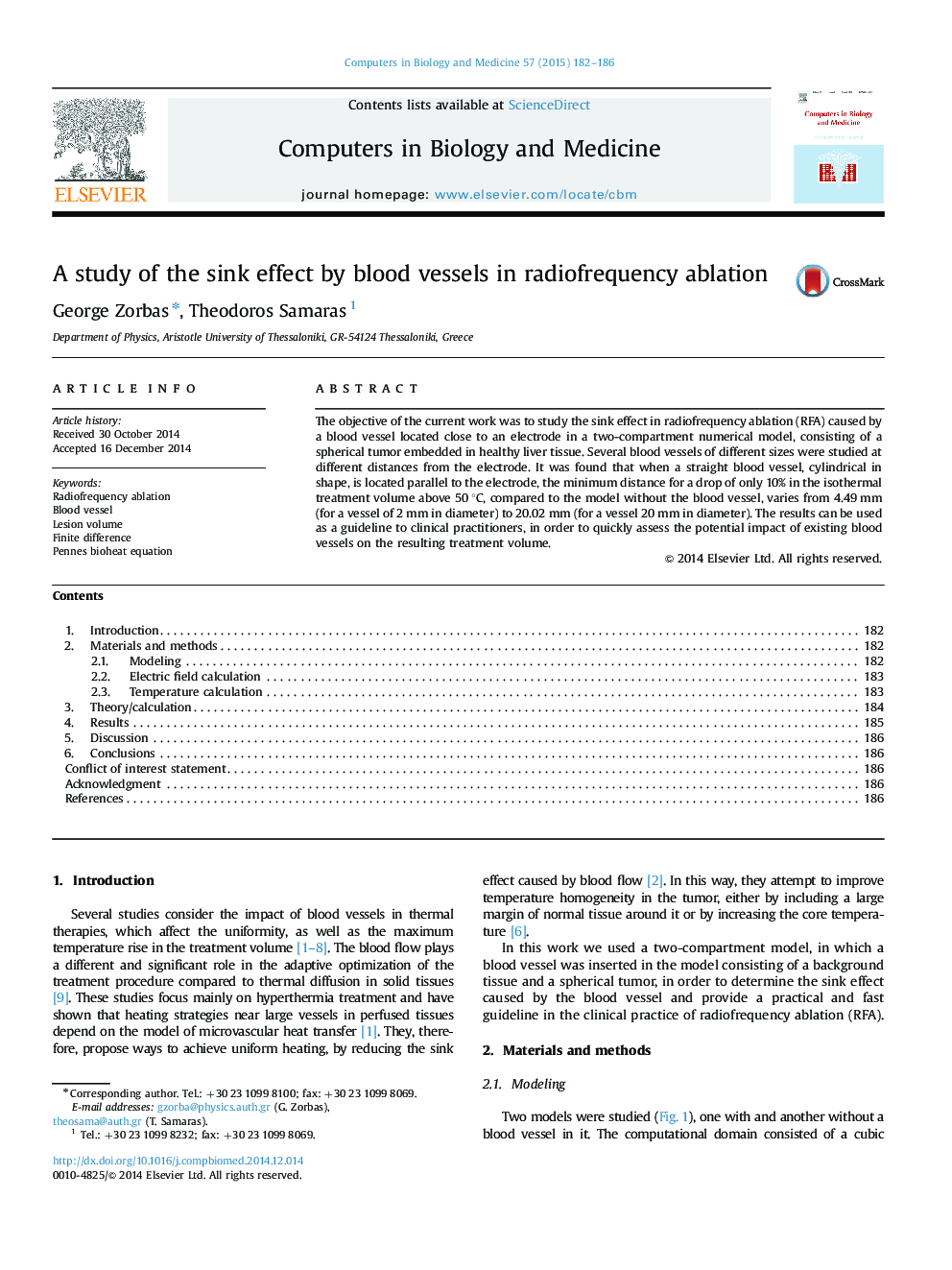| Article ID | Journal | Published Year | Pages | File Type |
|---|---|---|---|---|
| 6921442 | Computers in Biology and Medicine | 2015 | 5 Pages |
Abstract
The objective of the current work was to study the sink effect in radiofrequency ablation (RFA) caused by a blood vessel located close to an electrode in a two-compartment numerical model, consisting of a spherical tumor embedded in healthy liver tissue. Several blood vessels of different sizes were studied at different distances from the electrode. It was found that when a straight blood vessel, cylindrical in shape, is located parallel to the electrode, the minimum distance for a drop of only 10% in the isothermal treatment volume above 50 °C, compared to the model without the blood vessel, varies from 4.49 mm (for a vessel of 2 mm in diameter) to 20.02 mm (for a vessel 20 mm in diameter). The results can be used as a guideline to clinical practitioners, in order to quickly assess the potential impact of existing blood vessels on the resulting treatment volume.
Related Topics
Physical Sciences and Engineering
Computer Science
Computer Science Applications
Authors
George Zorbas, Theodoros Samaras,
